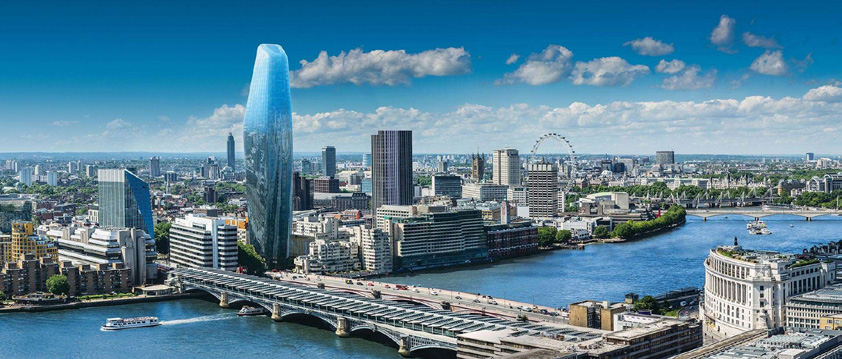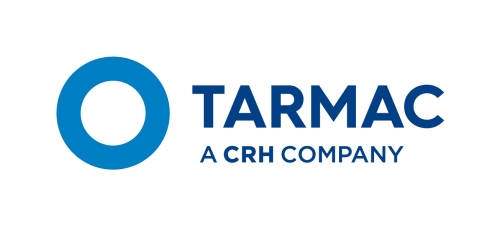sustainable construction
“The collaborative nature of our winning entries makes it clear that working together to achieve better outcomes for our clients is crucial. Our congratulations and thanks go to our partners who share our values of developing the best innovations from across the supply chain to benefit the nation’s road infrastructure.”
Paul Fleetham, managing director of Tarmac’s Contracting business
highlights
New Logistics Capabilities
The carbon debate is often focused on capital or embodied carbon measurements that incorporate carbon emitted during materials production and construction. This overlooks the bigger picture. Crucially, embodied carbon measurements fail to consider performance over an assets lifecycle, risking sub-optimal design and specification, as well as higher running or maintenance costs.
To meet the government's construction sector deal target of 50% reduction in greenhouse gas emissions by 2025, working together with our Clients and Customers to adopt a whole-life approach to carbon is vital.
Put simply, whole-life analysis measures anticipated carbon impacts over the lifetime of an asset. This includes extraction of raw materials, product miles and construction, through to maintenance, repair, reuse and recyclability following demolition. Both RIBA & RICS acknowledged the importance of whole-life specification, issuing guidance for members that became mandatory in 2018.
We’re working continuously to enable sustainable construction through the new solutions including technology and product development. Collaboration and early engagement is key to this. We teamed up with the UK Green Building Council (UKGBC) to host an event, entitled ‘Delivering Sustainable Infrastructure: the role of resilient supply chains.’

We’ve enhanced its logistics capabilities for customers by rolling out Electronic Point of Delivery (EPOD) software, an innovative new digital delivery tracking system, across our 1,800-strong vehicle fleet, which will deliver improved efficiency and customer service.
Read case study - Tarmac builds customer experience with innovation in digital delivery tracking.
We’ve also implemented OneCard, a cloud-based smartcard system, which records data on each Driver’s training history, as well as key qualifications such as The Driver Certificate of Professional Competence (CPC), making the process of site safety checks much quicker and providing reassurance to our customers that our drivers are fully trained and competent.
Read case study - Tarmac OneCard
In 2018, we became the first company in the UK to adopt a cutting-edge planning and real-time software technology to optimise road construction logistics and productivity. The BPO Asphalt software allows our Contracting team to plan highways projects in meticulous detail well ahead of work starting on site.
Collaboration is key to creating opportunities to develop sustainable solutions. For example, we worked closely with the principal contractor and other subcontractors on the redevelopment of Waterloo Station in London, which called for expert product design, exacting quality and visual standards and innovative installation of materials in confined time periods at the UK’s busiest railway station.
Read case study - First-class development at Waterloo station
We were recognised several times in the national Highways Awards 2018. Our industry collaboration as part of the Category Management Pavement community, was recognised for its working practices in efficiency and minimising disruption winning the Highways Maintenance Efficiency Award and scooped the Judges Special Merit Award.
In 2018, working in partnership with Amey, RSL Fabrications and ND Brown, Tarmac launched a site-mixed asphalt innovation, ULTIPATCH SITEMIX, which won Product of the Year at the 2018 Highways Awards. The low-volume asphalt heating technology can be mixed on site, making it suitable for busy urban locations or remote areas.
Watch - Ultipatch Sitemix film
Local road maintenance and potholes are an issue of concern to the public, local authorities and politicians due to the negative consequences for the safety of road users and impact on the local economy. Tarmac promotes a new approach including long term budget certainty, use of asset management and digital tools to enable a planned maintenance approach and selection of the optimum materials based on whole life costing. Where pothole repairs are needed we have developed asphalt technology, like ULTIGRIP, a new skid-resistant asphalt, which reduces waste and delivers improved road safety, while unlocking whole-life cost savings.
Read case study - Getting a grip on high-friction asphalt
In 2018 a collaborative innovation project hailed as a “game-changer” for the housing sector and involving some of Britain’s biggest housebuilders was launched. The £6.5 million research and development project is known as Advanced Industrialised Methods for the Construction of Homes (AIMCH), and aims to help tackle the UK housing crisis.
The three-year project involves Tarmac, Stewart Milne Group, Barratt Developments, London & Quadrant Housing Trust, the Manufacturing Technology Centre, the Construction Scotland Innovation Centre, and Forster Roong Services as the small and medium-sized enterprise partner. The project intends to address challenges in attaining the additional 120,000 homes estimated to be needed each year in the UK. The scheme aims to become a “major player” in the housing sector, delivering the annual target for the same or lower cost than traditional craft methods, 30 percent more quickly and with a 50 per cent reduction in defects.
Our highly fluid Top flow 60 solution has helped bring the urban environment to life with the construction of Patrick McEvoy’s winning design depicting a sausage dog, which was recently erected in Jubilee Gardens in Houndsditch.

